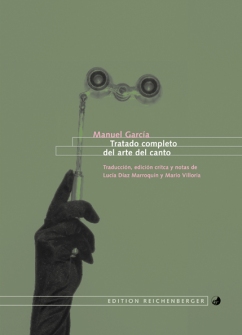Manuel Patricio García, María Malibran and Pauline Viardot’s brother and the son of the first Count Almaviva in Rossini’s Il barbiere di Siviglia (Manuel del Pópulo García), published his Traité complet de l’art du chant (1840-1847), bringing forward a tool useful to understand and to put into practice the most passionate form of poesis: Bel canto operatic singing.
From the moment when early musical dramas started being per formed, in the Italian accademiae of the early Seicento, opera became the genre best suited to embody the European cultural identity beyond linguistic, territorial and national differences. Its development was double, taking place both at the alta cultura level and at the popular culture one, as several subgenres sprang out of each national dramatic substrate which got in contact with the mainstream Italian tradition, from the masque or ballet de court to the Singspiel or the zarzuela.
formed, in the Italian accademiae of the early Seicento, opera became the genre best suited to embody the European cultural identity beyond linguistic, territorial and national differences. Its development was double, taking place both at the alta cultura level and at the popular culture one, as several subgenres sprang out of each national dramatic substrate which got in contact with the mainstream Italian tradition, from the masque or ballet de court to the Singspiel or the zarzuela.
Its reception is conditioned by rites engaging those who attend, as well as those who sing or play in each performance, consisting in the same four aspects which García analyzes in his Treatise: the human voice and its nuances, words in music, dramatic gestures and the performance of emotion on stage.
Rooted in the tradition of Neapolitan singing learned in his youth, as well as in his experience both as an opera professional and as an amateur scientist, Manuel García’s Treatise is a detailed analysis of the operatic vocal technique as it was understood by the main bel canto singers, such as Giuditta Pasta, Gilbert Duprez or his own father, the tenor Manuel del Pópulo García. It is, therefore, an invaluable tool for academic researchers in this field, as well as for singers and for the educated opera lover.
The editors:
Lucía Díaz Marroquín is Ramon y Cajal Researcher and Lecturer at the Universidad Complutense de Madrid, having obtained a Master of Arts at the State University of New York and developed postdoctoral research at the Warburg Institute (School of Advanced Study; University of London) and at the Università di Bologna. As a mezzo soprano, she specialises in oratorio (J. S. Bach, G. F. Handel, A. Vivaldi, etc.). Her book La retórica de los afectos (Reichenberger: 2008) studies the epistemology of the emotions expressed in early operatic repertoires, which Manuel García would later develop in his Traité complet de l’art du chant. She has also published the monography La práctica del canto según Manuel García, featuring the exercises and annotated arias which García included in his Traité.
Mario Villoria Morillo is Maestro de Cámara at the Fernando de Castro Foundation, as well as vocal technique instructor at the CEU San Pablo University. He completed his postgraduate studies as a soloist baritone at the Royal Northern College of Music (Manchester) and at the Escuela Reina Sofía (Madrid). His singing repertoire encompasses classical and bel canto characters, as well as those appearing in Benjamin Britten or Viktor Ullmann’s operas. He regularly performs concert-song recitals by authors such as Johannes Brahms, Francis Poulenc, or Antón García Abril.
